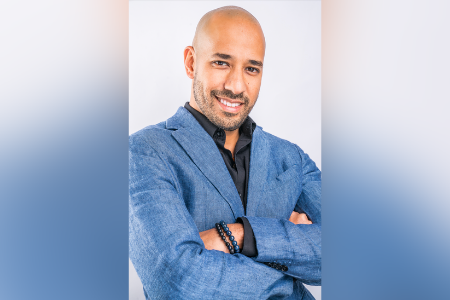'There needs to more attention put on understanding, from a leadership perspective, to suss out those toxic personalities and really have a conversation'

When the majority partners of an advertising firm in New York felt the company’s future prospect were dim in April 2020, it shut down for good.
With that, one of its executives had a crisis of faith.
“I’m like: ‘I’m ready to look for another job. I’m done with the ad agency world. I do not want to deal with anything agency-related,’ because the culture was just not what I had envisioned,” says Michael Cruz, former creative director at Drum Agency.
After about 16 years in the business, Cruz wanted something different, he says, but he listened to a pitch from Rob Simone, president of Summer Friday, and decided to take the plunge with a new company.
“He talked me off the cliff for a minute,” says Cruz, who is now partner and head of content at Summer Friday in New York.
“That led to about a four- or five-hour conversation with Rob around culture and not willing to do anything unless we’re fully aligned on what I believe the vision should be going forward, and really putting our money where our mouth is when we talk about what we care about and what kind of career we wanted to develop for ourselves.”
New name, new ‘vibe’
First step? Coming up with the new name, which riffed on the feeling when the last day of the workweek rolls around, says Cruz.
“In my previous experiences in agencies, when summer Fridays kicked in, that was just the possibility of ‘What are you going to do with that time?’ That was always a mystery behind it and excitement and play and reward and I feel like that vibe was what we were looking for.”
The relaxed atmosphere has translated into the way the company conducts its business, he says, as they won’t take on clients if employees feel it would be too onerous.
“If we decide that this isn’t the right client for us for a multitude of reasons, it’s mostly because we can’t properly service our clients, we can’t deliver what they deserve so in that way, it’s not failure, it’s shifting that perspective, it’s the best chance of winning.”
“[It’s about] just asking our teams their opinions, letting them know their voice is heard, and then also adjusting and following through based on their feedback,” says Cruz.
This results in a stronger group of employees, he says.

Michael Cruz
“If we’re looking at building a team that’s optimized for performance and delivering, then we have to take the approach as leaders to be emotionally intelligent and understand that everyone is dealing with certain issues in their lives, and understand that the company that we want to build is one that supports them beyond a title, beyond their career goals, and more with their life goals.”
“We really look at the human equity and really value our employees in the same way we value our clients,” says Cruz.
Combatting a toxic culture
A toxic culture is a “huge issue” in advertising, says Cruz, “and it speaks to the grind that most people have in the marketing industry. This ego, which I think is toxic; the ego of needing to be correct or needing to be the authority, and what does that position look like when you’re a leader?”
For empathetic leaders, this needs to be reined in and even trained out of certain employees, to the good of company culture, he says.
“There needs to be a lot more attention put on understanding from a leadership perspective, to suss out those toxic personalities and really have a conversation — not necessarily boot them out — but work with them and train them out of that situation because it metastasizes and spreads. Negativity spreads a lot faster than positivity, which is unfortunate, but it’s a big issue.”
For potential new customers, not everybody fully understands what Summer Friday is getting at, says Cruz, but there has been positive feedback so far.
“One client got on a call with us and said, ‘We don’t know if you can actually support everything that we’re asking for but we love your level of transparency and we just feel like you guys are a team that’s going to have our back, and we want to work with you.’ That has been what allowed us to land some really major clients and then gain their trust, and respect after we’ve delivered time and time again,” says Cruz.
Emotional intelligence is becoming much more critical in the modern workplace, and work-life balance is seen as being even more important than pre-COVID, according to one survey.




